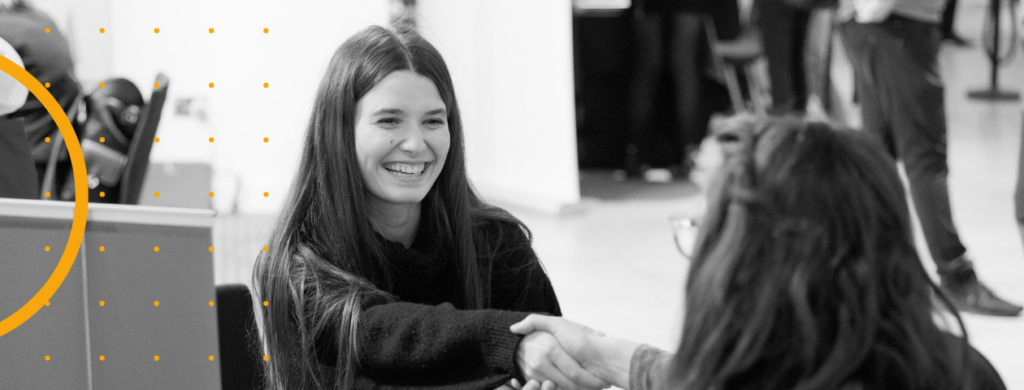
Due to the developing coronavirus outbreak, students across the world are now studying and learning remotely. Here’s how your university can help students build healthy habits.
As part of the higher education experience, students must complete a large amount of work to a high standard, something that secondary education may not have fully prepared them for.
While students will have previous experience with taking exams and completing coursework, higher education demands an even greater level of independent study from students in order to prepare them for the workplace.
A student’s workload will differ according to the subject matter, with Medicine typically demanding 17 hours in related work outside of university, 16 hours of contact time within the university, and 14 hours of independent study.
They must learn how to structure their days around contact hours, determine research topics to pursue, and get to know how they learn best.
However, as the coronavirus outbreak develops, universities across the world have closed campuses and have asked students to study and learn remotely.
This poses a unique challenge to students who are now attempting to continue their studies without the resources they usually depend on, such as the university library, in-person lectures and seminars, and face-to-face contact with teaching staff.
While many universities have the virtual means required to allow students to conduct most of their work remotely, it’s still a challenging task for students to learn how to navigate such a level of independence when it comes to their studies.
It’s important to provide your students with guidance on how best to approach their studies from home, keeping in mind how their movements or resources may be restricted.
It’s necessary to also consider the stress that some students will be under during this time and to encourage them to develop healthy study habits that will help them to manage this anxiety.
Remember that what works for some students might not work for all, and so try to remain flexible with your approach to teaching during this time.
Below are a few tips on healthy study habits that higher education institutions can communicate to their students during these uncertain times.
Create structure
When studying at home, it can be tempting to take a relaxed approach: wearing pajamas, working from bed, or choosing to complete tasks ad hoc.
However, for most students, this doesn’t create a scenario where they can be their most productive self.
It’s important that students train their brains to switch into ‘study mode’ when working from home by creating a routine that indicates it’s time to focus.
Steps to encourage ‘study mode’ include:
- Starting the day first thing with a productive morning ritual such as drinking a cup of tea, eating breakfast, or completing a workout
- Setting up a dedicated workplace, such as a desk, and only working from here
- Changing into day clothes and out of pajamas
- Remove non-work-related distractions such as social media or TV
Planning tasks according to hours in the day is a huge factor in creating the structure needed to successfully study from home.
Students should choose the hours they will dedicate to study and assign specific tasks and topics to these hours.
This ensures they always have a goal to aim towards during working hours and switching up these goals will help them to remain interested.
In his book, Deep Work: Rules for Focused Success in a Distracted World, the author Cal Newport defines deep work as “to focus without distraction on a cognitively demanding task” and shallow work describes “activities that are more logistical in nature, that don’t require intense concentration.”
He explains that distinguishing between different kinds of work can help you to structure your days a lot better.
For example, if a student works best in the mornings, they should assign tasks that require large amounts of concentration to this time.
It’s important that you encourage students to stick closely to the structure they have created for themselves, or to fine-tune it until it works best for them.
Take regular breaks
As teaching and learning moves online, it becomes even more important for students to take regular breaks from their work.
Constant screen use can irritate eyes and sitting at a desk for extended periods of time can result in poor posture.
Not only do regular breaks help to keep the body working at its best, it also helps the mind focus.
A study led by the University of Illinois’s Psychology Professor Alejandro Lleras revealed that the reason one begins to perform poorly on a task is because they have essentially stopped paying attention to it.
He compares this with sensory perception in that, after wearing them for some time, we stop noticing the sensation of clothes on our skin.
This is because “the brain gradually stops registering a sight, sound, or feeling if that stimulus remains constant over time.”
To Lleras, a similar phenomenon occurs when we attempt to concentrate on one task for long periods, in that our brain registers a constant stimulation as unimportant.
In order to keep focused and productive, we must therefore take regular breaks away from studying so that we refresh our focus.
To Lleras, “prolonged attention to a single task actually hinders performance.”
Communicate
The coronavirus outbreak has forced many people across the globe into isolation to varying degrees, making it almost impossible to retain the level of communication with others that they had before.
This poses a challenge when it comes to higher education, as there is significant evidence in favor of communication and discussion as important elements of the learning process.
Active learning is the process whereby students engage with class material by discussing it with others in the class and openly sharing their feedback, instead of simply absorbing information that is presented to them.
Standford University writes on the importance of active learning as part of the university experience, stating that: “Students learn more when they participate in the process of learning, whether it’s through discussion, practice, review, or application.”
The university provides examples of how this can be achieved through small-group discussions, brainstorming, debates, and problem-solving exercises.
Now more than ever, the value of technology is clear, as various internet applications have enabled active learning to still take place remotely.
In this current climate, students can connect using platforms such as Slack, Microsoft Teams, Zoom, Google Hangouts, and Skype.
Encourage your students to make use of these platforms to discuss topics, get any clarity they might need, and bounce ideas off each other.
Utilizing the internet in this way is also a great way to curb loneliness and keep your students sociable and uplifted.
Keep healthy
When studying from home, it can be very easy to slip into unhealthy habits.
In a comfortable environment, it can be difficult to stay motivated to get regular exercise and eat healthy.
This is particularly challenging now given the restrictions in place in many countries across the globe, urging people to stay indoors and impacting their regular means of exercise and access to usual foods.
However, there is a strong correlation between unhealthy habits and concentration, which, if not properly addressed, could have a negative effect on a student’s education.
Harvard Medical School explains how our brain needs the right ‘fuel’ in order to function properly, and this comes in the form of nutritious food, water, and good bacteria.
They add how “eating high-quality foods that contain lots of vitamins, minerals, and antioxidants nourishes the brain and protects it from oxidative stress.”
It’s important to encourage your students to eat a healthy and nutritious diet during their study from home periods, instead of reaching for unhealthy snacks they may have around the house.
The benefits of regular exercise were also revealed in another study by Harvard Medical School.
They explain how exercise “stimulates brain regions that are involved in memory function to release a chemical called brain-derived neurotrophic factor (BDNF),” which in turn helps the brain function better.
According to the experts, it’s best to advise your students to take part in 30 minutes of moderate-intensity exercise, ideally five days a week.
Given that many countries have closed gyms at this present time, students can easily take part in a home workout by following a guidance video.
If allowed, getting outdoors to do a workout or simply to go for a walk will help to relieve anxiety and help to keep your students relaxed.
Regardless of whether your students are studying on campus or remotely, universities can equip students with the knowledge they need to create healthy study habits.
If you’d like to learn more about how prospective international students and institutions are responding to the coronavirus, please download a free copy of our QS report: The Impact of the Coronavirus on Global Higher Education.



